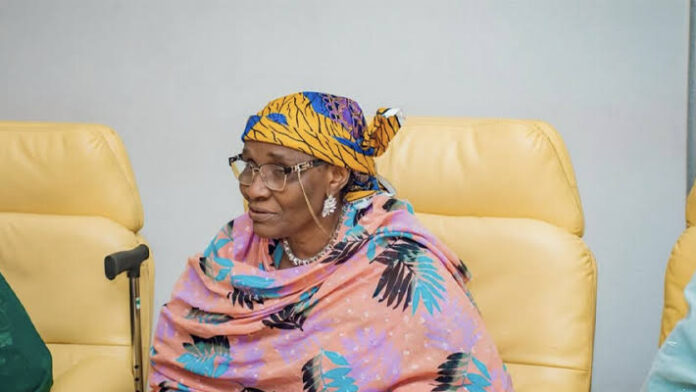By Chika Nwachukwu
Newly appointed Executive Secretary, Universal Basic Education Commission, UBEC, Aisha Garba, has assumed duty with a promise to deploy strategies to advance delivery of quality basic education for millions of school-aged children in Nigeria.
A statement by the Head of Public Relations and Protocol, Mr David Apeh, said Garba, who spoke during a meeting with members of management and staff of the commission on Monday in Abuja, emphasised that education is the right of every child regardless of religion, class, gender or economic condition as captured in Article 26 of the 1948 Universal Declaration of Human Rights.
She lamented that with approximately 17 million children, Nigeria has one of the highest number of out-of-school children in the world, constituting a staggering obstacle to the nation’s progress towards universal access to education.
She added that even when children are in school, they lag behind in learning outcomes.
“According to a World Bank Capital Index, students in Nigeria scored 309 on a harmonised test score scale, where 625 is considered advanced attainment and 300 represents minimum attainment.
“According to UNICEF, the primary school completion rate for Nigeria was at 59 percent in 2020 for boys and 51 percent for girls. The secondary school completion rate is even lower, with boys at 42 percent and girls at 36 percent.
“Access to higher education is still a challenge: while about two million candidates sit for JAMB every year, only about 500,000 are accepted,” she stated.
The UBEC boss extended appreciation to President Bola Tinubu and the Ministers of Education, Dr Olatunji Alausa and Professor Suwaiba Ahmad for her appointment to serve the nation.
She highlighted the importance of partnership and collaboration to drive the development of basic education in the country.
Garba said: “Today, being my first meeting with you as executive secretary of the Universal Basic Education Commission which was set up in 2004 with a mandate to formulate and coordinate all aspects of Universal Basic Education programme and establish minimum standards for basic education in Nigeria.
“My goal is to deliver on this mandate which includes strengthening collaboration, partnerships and institutional learning for effective service delivery.
“Together, we will work to increase access, improve quality, provide conducive and safe learning environments, supply adequate teaching and learning materials, and adopt the concept of ‘best fit’ in addressing specific basic education challenges, state by state and region by region (not a one-size-fits-all solution),” she stated.
She added that the commission under her watch would seek multi-sectoral approach to address the demand and supply-side barriers to basic education which has continued to exacerbate the challenge of out-of-school children.
According to her, UBEC would work collaboratively with Ministries, Departments and Agencies, Commissions and Development Partners on reforms and interventions to increase access and significantly reduce the high number of out-of-school children in Nigeria.
She listed some key action plans to include the deployment of appropriate interventions, use of technology, construction of critical infrastructure and the upgrading of school facilities.





